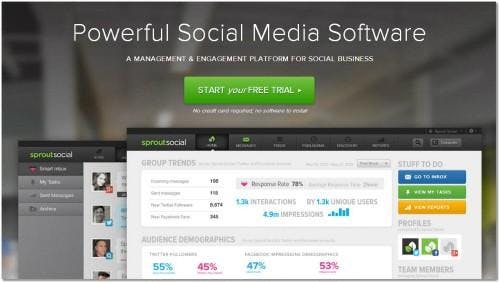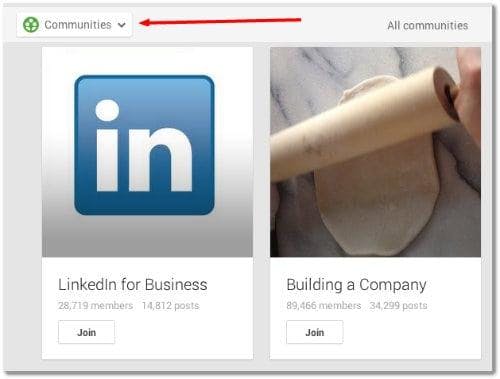Are you eager to expand your online presence? Does building your social media audience feel overwhelming? In today's fast-paced online environment, expanding your reach is critical. Not only will it establish credibility, but also professional relevance.
To grab the attention of your target market, you must create a group of raving fans committed to sharing your mission and vision. But how can you do that without it feeling like a full-time job?
You learn from the best, and in my opinion, no one is more qualified than Peg Fitzpatrick. Peg is the head of social media for Canva and the social media “enhancer” behind Guy Kawasaki’s amazing online brand. Peg manages a social community of over ten million followers.
An incredible feat and one that she juggles daily with grace, wit and humor. I know you’ll gain an enormous amount of insight from her post, so let's dive in!
What are communities?
A community is a place where people can connect online to talk about things that they have in common. It can also be a tribe of people who long to be connected and want to communicate with others and share ideas.
An online community can be a Google+ community, Facebook Group, LinkedIn Group, Sub Reddit, Twitter stream, or any combination of the above. Building a huge social following can often lead people to long for a deeper connection and communities can fill this need. From Seth Godin in Tribes,
A tribe is a group of people connected to one another, connected to a leader, and connected to an idea. For millions of years, human beings have been part of one tribe or another. A group needs only two things to be a tribe: a shared interest and a way to communicate.
There are many reasons that you may want to start a community. Your company may want to organize a fan base, talk with other people who love photography, or discuss work-related topics such as how to manage employees or keeping up with the latest regulations in your industry.
Communities can be purely social, but should have a foundation to keep the intentions of the group clear. Leadership is needed within a community and the goals of the community should be transparent to all the members. Leaders need to be ready to make bold decisions.
Changing things requires active thinkers who are ready to push the envelope and do something unique. Building a future something requires actions that haven't been taken before. Get ready to step forward and build your social network with a community!
Navigating social media to find your community
- Use social media listening to find your fan base. You are listening to people on social media, right?
- Keyword searches for relevant topics can help you find like-minded people.
- I use Social Mention, Sprout Social, Google Alerts, Topsy, and Social Bro.

Starting and managing a group of your own
- Pick the best platform for your community: Google+ community, Facebook Group or LinkedIn Group. Each platform has a different environment and social base.
- A community is like a puppy. Cute and adorable but lots of work! Choose wisely before you start a community.
- Setup up guidelines for the community.
- Stick to the rules and be fair.
- Find other people who are passionate about the community to be co-moderators.
“Great leaders don't try to please everyone. Great leaders don't water down their message in order to make the tribe a bit bigger. Instead, they realize that a motivated, connected tribe in the midst of a movement is far more powerful than a larger group could ever be.” ― Seth Godin

Why finding or building a community is useful
- Creating an online tribe or community helps people stay connected and interested online.
- Starting a community can build a sense of belonging with your blog or company.
- Build your area of expertise and thought leadership by offering valuable information to your community.
- Build relationships that could turn into future clients.
- Referrals from community members.
Engaging with and participating in community discussions
- Leave notifications on for the community so you can monitor it closely.
- Get email updates from the community but filter them into a Gmail folder.
- Post interesting and relevant content into your community.
- Allow conversations to flow in the community – don’t hop on every post.
If your goal is to build leads and get clients from a community, you don't want to start a community of people who do the same thing that you do because this won't lead to work. You'll end up with the puppy to clean up after and a lot of time wasted on socializing without a goal.
This can be a problem for many entrepreneurs as they try to connect but aren't building the foundation that creates lead referrals and future clients. You don't want to end up fishing in the goldfish bowl, you need to be out in the ocean for new leads and future business.
Having a clear social media strategy is important to make sure that you're moving forward and not spending time entertaining other people for the sake of leading a community.
Some common community rules
- No link litter.
- Short version: link litter is dropping just the link or only one sentence.
- Use the proper category when posting.
- Be respectful of the community and its members.
- Add value to the group by posting quality content and engaging with other posts.
- If you don’t follow the community guidelines, your post may be removed and you may be banned from the community.
- Don't create off topic posts. Communities have a focus that you should stick to.
Community tips: How to manage a community from Ronnie Bincer
Google has some advice for Community Owners and Moderators. An excerpt from what you'll see when you visit the help doc:
- Tips for a successful community
- Promote your community as a place where people can have conversations and share ideas
- Participate in conversations by posting, leaving comments and +1'ing posts
- Celebrate and engage with your members
- Add moderators and invite them to manage content and share regularly
- Add categories to help guide discussions
- Listen to and learn from your community's members
Final thoughts
Communities can be a great place to build an online network of colleagues and friends. I hope this gives you some ideas for your community building strategies. Communities are a lot of work but they can be worth it!
About Rebekah Radice
Rebekah Radice, co-founder of BRIL.LA, has traded narcissism for purpose. When not driving growth, you'll find her tricking family into thinking she's Emeril Lagasse - likely covered in marinara. The spotlight was fun, but impact is better. These days she's using 20+ years of brand brilliance for good.
